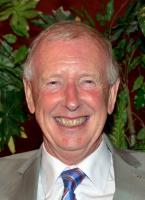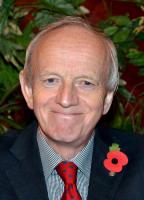Speaker Chris Parker on Blood Bikes
Wed, Jan 24th 2024 at 12:00 pm - 2:00 pm
Chris told us about the National Association of Blood Bikes. - Speaker Finder John Waterhouse, Visitors Host, Grace & Banners Mike Clewes,
Chris said that he volunteers for the White Knights Yorkshire Blood Bikes. Until he retired 18 months ago, he was a bank manager travelling around North of England working for Lloyds. Now he is a Financial Advisor working for himself as he had had enough of 55-hour weeks.
Blood Bikes are not part NHS and do not carry the NHS logo on their bikes even though they work for them and hospices. They are an out of hours delivery service usually taking samples for investigation as well as drugs for hospices and baby milk. They work overnight plus 24 hours on Bank Holidays. The organisation started 1962 in Surrey area. Now there are 36 independent groups around country. 3 bikers are on call every day in Yorkshire – one each in North Yorkshire, West Yorkshire, and South Yorkshire.
Bikers are trained to a high standard. They must have an advanced riding qualification such as the Institute of Advanced Motoring (IAM). The organisation owns the bikes and is exempt from paying road tax as they are classified as emergency vehicles. The bikers must be rechecked every 3 years. The organisation doesn’t receive any public funding and must pay for its own equipment. The bikes are professionally maintained.
The riders monitored by time tracking at dispatch. In bad weather they take a car to avoid damage to themselves and the bike. The final responsibility on whether to use the bike or a car rests with the rider.
Riders are offered hepatitis vaccinations but shouldn't need it as the samples they carry is wrapped up securely in 5 different packages. In Yorkshire the Blood Banks doesn't want whole blood on Bikes so only samples for testing are carried.
There are 9 Bikes in Yorkshire. 3 each North, West, and South area. One for the first half of the week, the second is which is transferred to whoever is on call in the second half of the week and the third as a backup. Although the bikes are fitted to the same standard as other emergency services with blue lights & sirens the sirens turned off and they are not authorised to use the blue lights. They must always follow the rule of the road. They can't break speed limit, go on hard shoulder in the same way that the police can. The bikes cover 30,000 mile per year in N Yorkshire whereas W Yorkshire it is around 9,000. The bike is a type approved bike - designed for the job.
When the service is needed the user calls the central dispatch (which is called DORIS) who wakes up rider to go collect the item He is then logged from leaving home to delivering the item and until he finally arrives home again. The system can tell if the bike has had an accident and will sort out getting help to the driver.
The bikes are given a name. Victoria has done 48,000 hard mile and now needs replacing. Last year the White Knights dealt with 3,500 jobs last year covering 91,000 mile and 3,800 hours on call. The items moved included breast milk, which is expressed by the donor, collected and taken to milk bank. This is primarily used for premature babies. Then there is faecal matter which is usually being tested for c. diff. If this is detected there are 2 patients in S Wales who've recovered from it and their stool samples contain antibodies against the disease which are used to try to control the infection. They also occasionally carry drugs to hospices. The main work, however, is taking blood samples to the regional blood transfusion Centre in Barnsley.
If a long-distance transfer is required they connect by relay with other districts to move the length and breadth of country. One example given being a faecal sample from Dundee to Sheffield. Using a Sat nav takes you to site but not to the department needed on a large hospital site. So, they use “What 3 Words” to get to the correct location.
During Covid they took samples 24/7 to try laboratories who were trying to find unique variants and mutations of the virus. Also, Macmillan nurses were not allowed to go to hospitals, so Blood Bikes took the required items and passed them through a window.
The first week Chris worked as a volunteer one of his colleagues rode over a breeze block and smashed the front wheel. As he was on an emergency call another rider came to pick up sample while he waited for the AA. Disposable vapes are a big problem – if you run over one it can explode and embed itself into your tyre as Chris showed on one photograph of a bike.
It costs £60,000 to £70,000 per annum in running costs to keep White Knights on the road. In addition, there is the need for regular bike replacements at £18,000k per bike. The registered office for Yorkshire is in Halifax which covers all the 3 Yorkshire areas. Donations are always needed.
For more information please view their web site: -
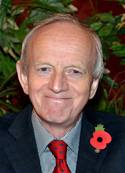 Contact John Waterhouse about this page:
Contact John Waterhouse about this page:
'What We Do' Main Pages:
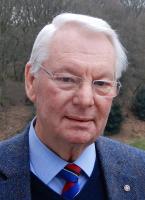
Coming under Community this part of the group exists to undertake environmental projects on behalf of the club.
more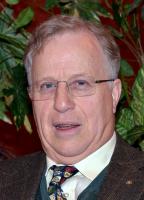
This committee provides the link with Rotary Internationals main charitable trust which primarily deals with projects having a global nature.
more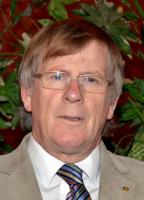
Rotary is not just about doing good deeds but also about enjoying yourself and this committee organises social activities. This page contains an archive of some of our activities.
moreThis committee works with the other committees to help them raise funds for their individual projects to support charities locally, nationally and internationally.
moreThis is the vehicle that donates the money that we have raised to the various good causes that we support. Its official name is The Rotary Club Of Bradford Blaize Trust Fund and its registered number with the Charity Commission is 514621.
moreThis committee organises social events and deals with the day to day running of the club.
moreThis committee exists to provide PR and communications between the members and also to provide links to non members through the web site and Facebook.
more
